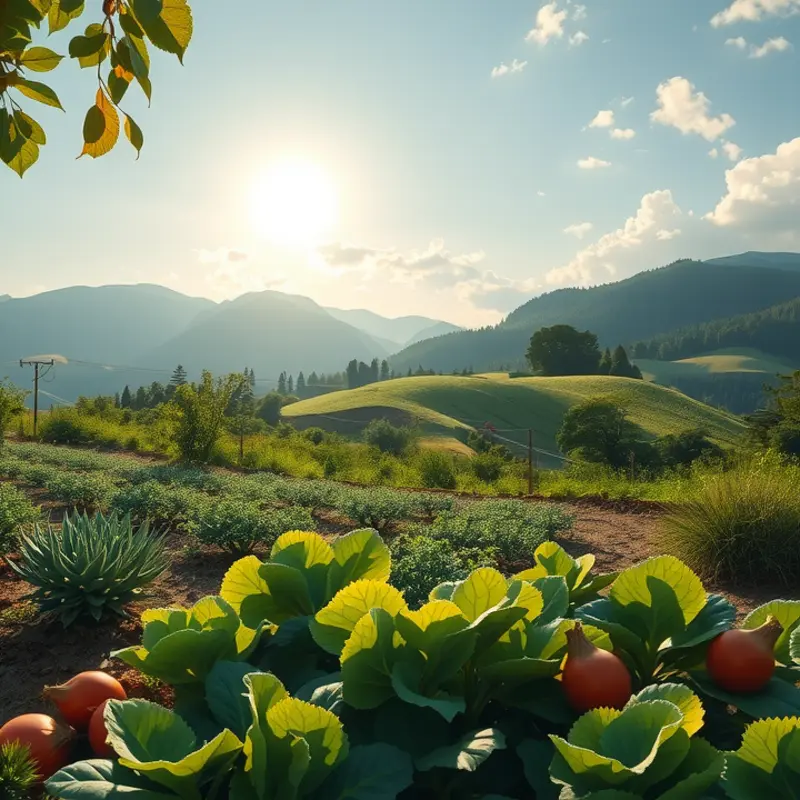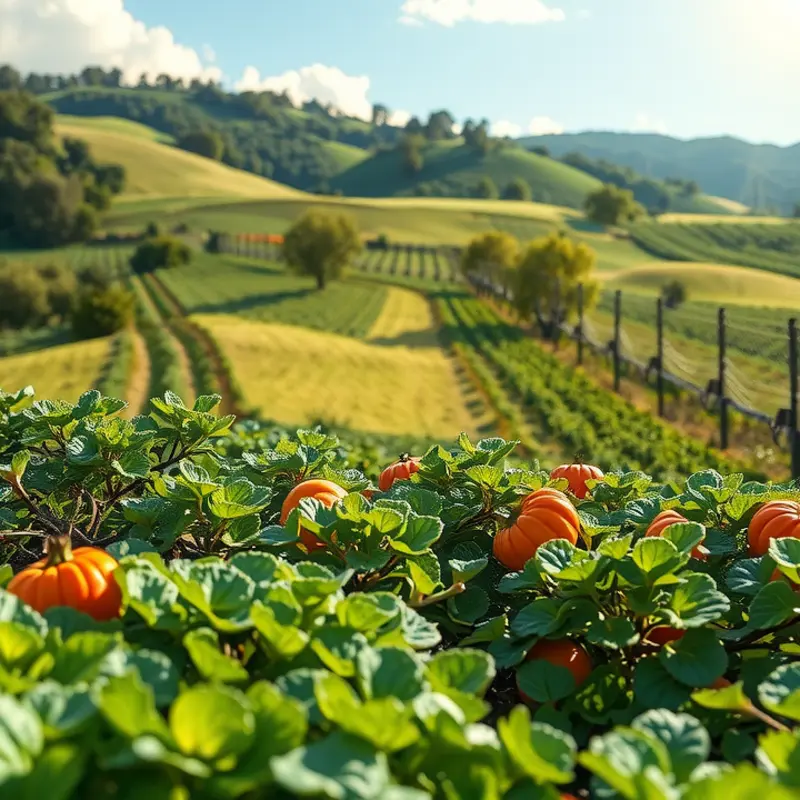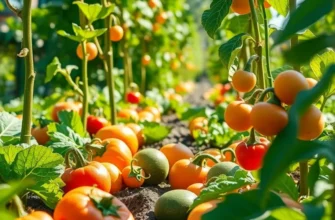Around the world, certain foods have emerged as symbols of health and longevity. From the vibrant Mediterranean diet to the plant-based meals of Okinawa, these culinary traditions not only nourish the body but also tell stories of culture, community, and heritage. By delving into the unique ingredients and cooking methods associated with long life, we can savor flavors that promise not just a taste of nutrition but a celebration of life itself.
Mediterranean Magic: The Secret of Olive Oil

The Mediterranean diet, rich in fruits, vegetables, whole grains, and healthy fats, has long been acclaimed for its health benefits. Central to this vibrant culinary tradition is olive oil, often touted as the elixir of longevity. Its regular use is linked to various health benefits, notably cardiovascular well-being.
Olive oil’s magic lies in its high content of monounsaturated fats, particularly oleic acid. These fats help reduce harmful cholesterol levels, thus supporting heart health. Moreover, olive oil is abundant in antioxidants, such as polyphenols and vitamin E, which combat inflammation and oxidative stress, both linked to chronic diseases and aging.
In Mediterranean kitchens, olive oil is more than a cooking medium; it’s a flavor enhancer that binds ingredients into harmonious dishes. Drizzle it generously over a vibrant Greek salad teeming with tomatoes, cucumbers, and feta cheese, or swirl it into chickpea-rich hummus for an earthy richness. The subtle, peppery notes of extra-virgin varieties can transform a simple piece of grilled fish into a culinary masterpiece.
Beyond olive oil, the Mediterranean diet encourages an array of wholesome foods. Nuts and seeds, like almonds and walnuts, contribute healthy fats and fiber, supporting both heart and digestive health. Legumes, including lentils and beans, are protein-rich staples providing essential nutrients such as iron and folate.
Fresh herbs such as basil, oregano, and parsley not only add vibrant flavors to dishes but also offer a bounty of micronutrients and antioxidants. For instance, fresh parsley is rich in vitamin K, essential for bone health, while oregano contains potent antibacterial and antioxidant properties.
This region’s culinary habits extend to mindful eating practices, focusing on savoring flavors, which aligns well with the concept of mindful eating explored in resources like the mindful flavor exploration. The social aspect of meals, often shared with family and friends, fosters strong community bonds, adding an emotional dimension to the dietary practice.
Mediterranean culture places importance on seasonal and local ingredients, ensuring that the freshest produce graces the dinner table. This not only heightens the nutritional value of meals but also promotes a sustainable approach to food consumption, potentially reducing the environmental footprint, as discussed in strategies for sustainable and eco-friendly eating.
One cannot mention Mediterranean cuisine without highlighting iconic dishes such as ratatouille, a vegetable medley rich in nutrients and flavor, or caprese salad, where ripe tomatoes, fresh mozzarella, and fragrant basil come together in perfect balance. Such dishes showcase the diet’s focus on simplicity, elevating modest ingredients through expert preparation and the judicious use of olive oil.
Adopting a Mediterranean style of eating involves more than just adding olive oil to meals. It’s embracing a lifestyle of balanced, mindful consumption, rich in flavors and nutrients. Through this, one can partake in the centuries-old legacy of health and longevity that the Mediterranean region proudly upholds.
Okinawa: The Land of the Immortals

Renowned for its centenarians, Okinawa offers a compelling insight into how a harmonious relationship with food contributes to longevity. The secret lies in a remarkable diet composed of fresh, local produce and an ethos that emphasizes moderation.
Central to Okinawan cuisine is the vibrant array of vegetables that fill their plates. Sweet potatoes stand out not just for their vibrant color but also for their nutritional richness. High in fiber and carotenoids, sweet potatoes serve as a staple that supports digestive health and provides long-lasting energy. This aligns with Okinawan’s practice of eating till they are 80% full, known as hara hachi bu, promoting portion control and reducing calorie intake.
Another cornerstone is tofu, a protein-packed soybean product, rich in calcium and isoflavones. These nutrients are linked to improved bone health and reduced risk of heart disease, making tofu an ideal protein source for extending vitality. Its role in Okinawan diets highlights the community’s shift away from meat-heavy meals towards plant-based sources, aligning with contemporary discussions around climate-smart eating.
Goya, or bitter melon, is another vegetable frequently consumed in Okinawa. Though its distinct taste may require an acquired palate, the health benefits are rewarding. It’s known for its anti-inflammatory properties and potential to aid in blood sugar regulation, showcasing the Okinawan reliance on natural functional foods to maintain health.
This vibrant diet is a reflection of the community’s cultural values, where food serves as a bridge for social gatherings and family interactions. Meals are less about indulgence and more about sustenance and joy, contributing to mental well-being alongside physical health.
Okinawans also integrate herbs and spices for flavor, rarely relying on processed options. The use of these natural flavor enhancers not only enriches dishes but provides antioxidants and other beneficial compounds, reducing reliance on salt and added sugars.
This dedication to fresh, nutrient-dense foods is complemented by an active lifestyle and strong community ties, where people support one another into old age. The Okinawan approach intertwines diet and lifestyle seamlessly, painting a picture of how balance and mindfulness can lead to a longer, healthier life.
These practices are not isolated; they’re part of a broader movement toward sustainable and health-conscious living. Integrating such principles into daily life may just be the key to unlocking greater longevity beyond Okinawa, demonstrating that the path to a long life lies in the wisdom of how and what we choose to eat.
Final words
Exploring global foods associated with longevity reveals that nutrition goes far beyond sustenance. Each dish carries deep ties to cultural history and community, reminding us that food is indeed a universal language. The Mediterranean olive oil and Okinawan sweet potatoes are more than just dietary staples; they are symbols of a way of life that prioritizes health and well-being. By embracing these culinary traditions, we not only enrich our palates but also our lives, cultivating a deeper appreciation for diverse cultures and the wisdom they offer regarding nourishment.








